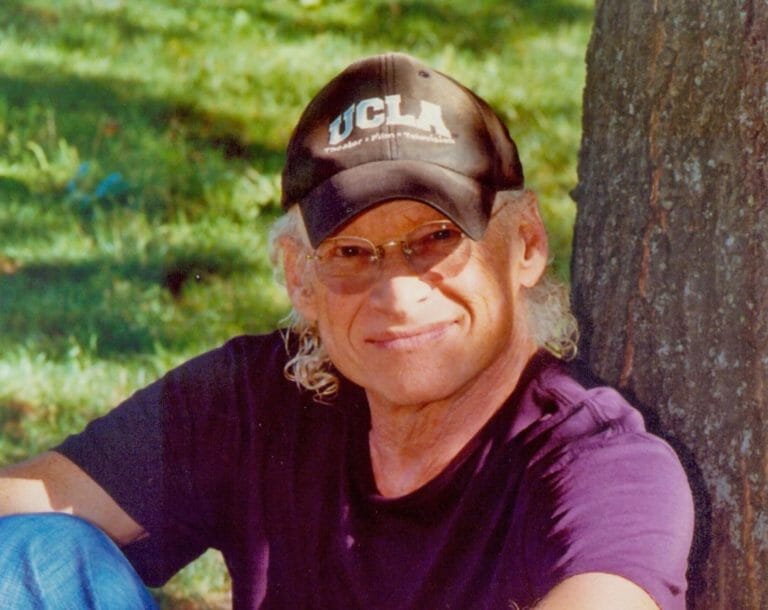By Richard Walter · August 31, 2016

Surely I’m better known as a writing educator than a writer.
All the same, after forty years and a half million dollars in therapy, I am able to say that I enjoy writing success. The Wall Street Journal calls me a “…writer of substantial professional experience throughout the media.”
I’ve written feature length screenplay assignments for virtually all the major studios and for many independent production companies, and had three movies produced (in addition to dozens of industrial, corporate, instructional, educational, informational, and no small number of government propaganda films for clients like the United States Army, the United States Air Force, and even the International Association of Chiefs of Police). I’ve sold material to the three major broadcast television networks. I have five books released by major New York publishers, including best selling fiction and nonfiction. I don’t mind bragging my last novel, Escape From Film School, appeared on the Times bestseller list (full disclosure: merely for a week, and only at number fifteen. But hey! The Times!)
My role as writer of the un-credited first drafts of American Graffiti also gives me quite literally my place in history. That is, when you read about the history of film in the mid to late 20th Century–for example biographies of George Lucas–my name is there. There’s no controversy regarding this. George tells it no differently. God bless him, he has complimented my work in print. Additionally, for my work on …Graffiti I was well compensated.
There’s nothing unusual about multiple writers working on a script and not all receiving screen credit. Authority for onscreen writing credit belongs to the Writers Guild. The two credited writers (in addition to George) on …Graffiti, for example, provided paid writing services also for Star Wars, and were well paid, but received no credit on screen.
With multiple published books treating screenwriting, and nearly forty years professing at UCLA, I am asked oodles of questions by oodles of writers regarding oodles of aspects of the art, craft, and business of writing for film, TV, and digital media.
I answer as best I can.
There are two questions, however, that I never answer. They are, actually, two versions of the same question.
The first one that I am asked — let’s call it the macro version — is: Do I have what it takes to be a writer?
Certainly, speaking for myself, I never intended to be a writer. When I look back on my earliest efforts, assignments written in college, I don’t see much promise. Looking back at my assigned college papers, I regard my writing as faulty and frail. I do not see cause for encouragement.
Sometimes writers strike it rich early and stay right there. Others enjoy early success and then fade away. Far more putter and sputter along and never get anywhere. Even if they do not achieve professional stature, however, surely their lives are affirmed and expanded by their having made creative expression an integral part of their lives.
Nobody but writers themselves can take the responsibility for the decision to pursue writing. It is they who have to live with the consequences. David Seidler, Oscar-winning writer of The King’s Speech, hadn’t earned a nickel — or a Euro — as a writer until he was well into his senior years.
The micro version of the same question: Should I continue rewriting this particular script or finally abandon it?
I’ve seen writers beat their head against a wall working and reworking and re-reworking a script until their fingers bled. I restrain myself from saying to them that they ought to move on, because it is not my or anybody else’s but the writer's place to make that call. It is, again, the writer alone who has to endure the consequences of deep-sixing a potential goldmine if only there had been just one more tweak.
Steven King, in his insightful, clear-as-light book On Writing, describes his experience with his breakthrough first novel, Carrie. He was still working as a school teacher in rural Maine. He was a good distance into Carrie when he decided it just wasn’t working and he tossed it in the trash where his wife, Tabitha, rescued it.
She read the pages and told Steven she thought they were promising. He reconsidered, rewrote, and ended up with a career-establishing bestseller and mega-hit movie, becoming among the most successful writers of all time. Of course not Tabitha but Steven had to do the heavy lifting, but ultimately it was nobody else’s but his decision to take her advice.
The bottom line: those who seek careers that are reliable, reasonable, rational, dependable, predictable ought to stay a zillion miles away from writing.
About the Author: Richard Walter is a playwright, screenwriter, author of best selling fiction and nonfiction, celebrated storytelling educator, associate dean, entertainment industry expert and longtime professor and chairman of the graduate screenwriting program at the UCLA School of Theater, Film and Television. In September 2016, Richard Walter will offer an exclusive online 6-week course. Here is a once-in-a-lifetime opportunity to train with the world’s most accomplished screenwriting educator. And, he'll read your script if you complete it within 2 months of the class! Reserve your seat at: http://richardwalter.com/workshop/.
Richard Walter Copyright © 2016